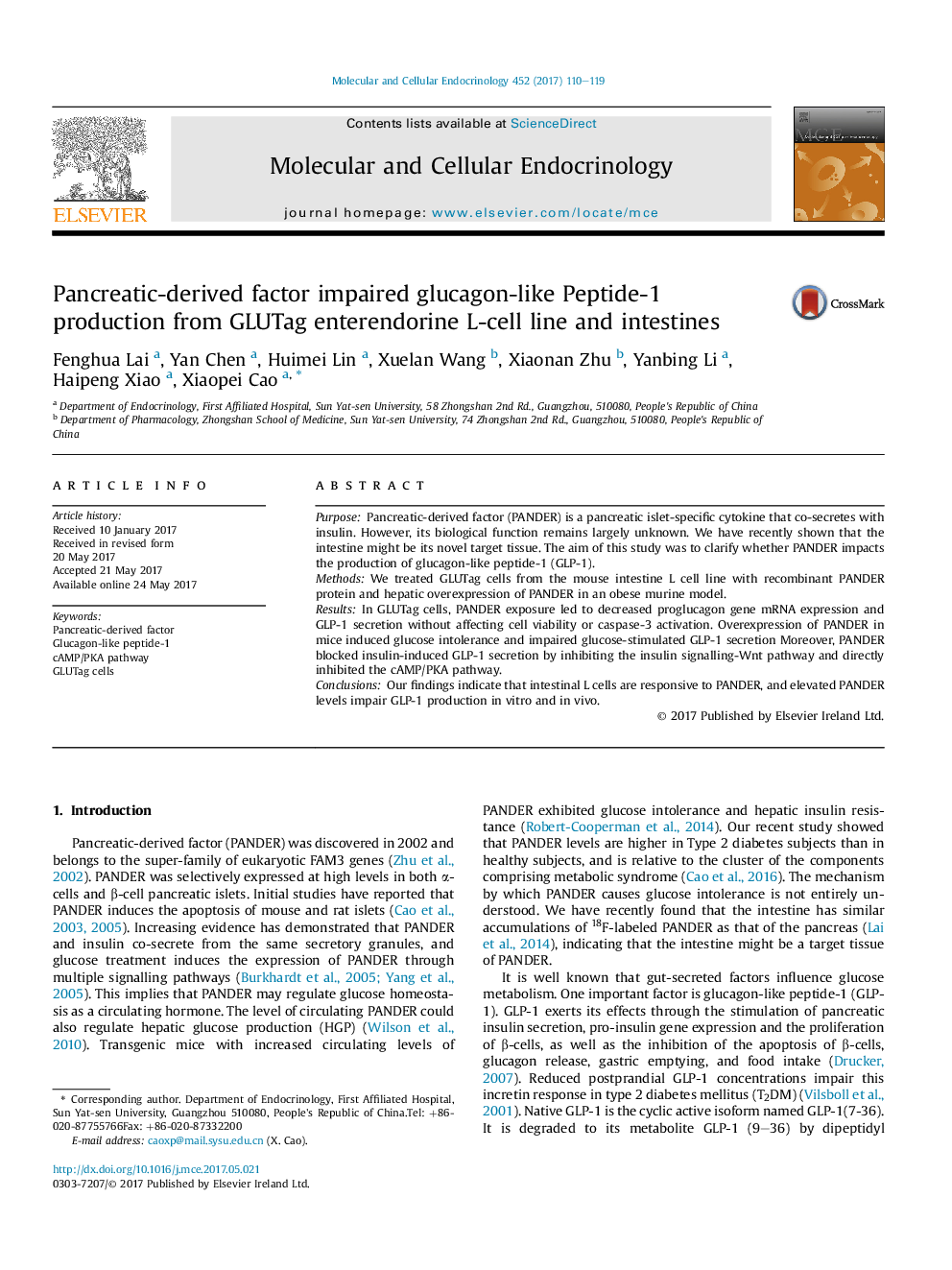| Article ID | Journal | Published Year | Pages | File Type |
|---|---|---|---|---|
| 5534037 | Molecular and Cellular Endocrinology | 2017 | 10 Pages |
â¢PANDER impairs GLP-1 secretion from the GLUTag enteroendocrine L-cell line.â¢Elevated PANDER levels impair GLP-1 production.â¢Excessive PANDER impaired GLP-1 production by compromising Wnt and its upstream insulin signalling pathways.â¢PANDER impaired lipid-inducing GLP-1 production partly through its direct inhibition of the GPR119/cAMP/PKA pathway.
PurposePancreatic-derived factor (PANDER) is a pancreatic islet-specific cytokine that co-secretes with insulin. However, its biological function remains largely unknown. We have recently shown that the intestine might be its novel target tissue. The aim of this study was to clarify whether PANDER impacts the production of glucagon-like peptide-1 (GLP-1).MethodsWe treated GLUTag cells from the mouse intestine L cell line with recombinant PANDER protein and hepatic overexpression of PANDER in an obese murine model.ResultsIn GLUTag cells, PANDER exposure led to decreased proglucagon gene mRNA expression and GLP-1 secretion without affecting cell viability or caspase-3 activation. Overexpression of PANDER in mice induced glucose intolerance and impaired glucose-stimulated GLP-1 secretion Moreover, PANDER blocked insulin-induced GLP-1 secretion by inhibiting the insulin signalling-Wnt pathway and directly inhibited the cAMP/PKA pathway.ConclusionsOur findings indicate that intestinal L cells are responsive to PANDER, and elevated PANDER levels impair GLP-1 production in vitro and in vivo.
